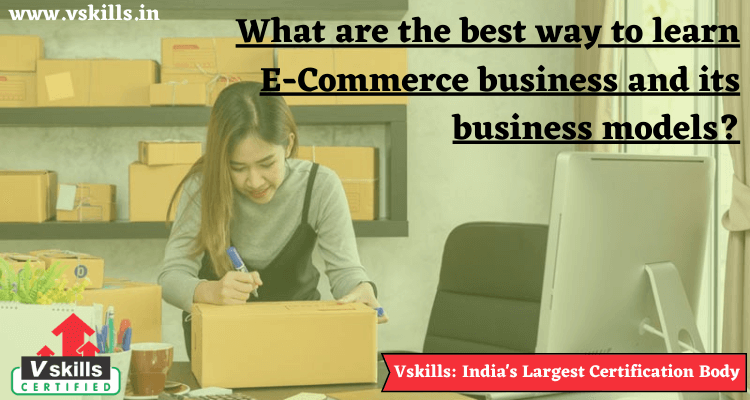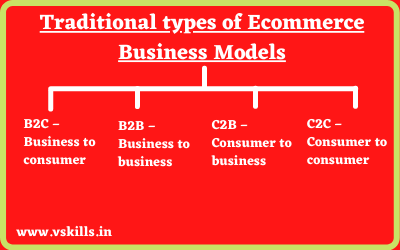Seems like you might want to join the field of e-commerce companies, and build an online store. It can be said a good decision if you do a lot of research, planning, and good implementation. So, let us start with the basics! Ecommerce or Electronic commerce or (sometimes deciphered as eCommerce) is a business concept. It lets firms and individuals trade stuff over the internet. Generating an E-commerce approach is a critical part of many companies. A large component of this method is understanding the target market and guessing what should eCommerce business model will be.
In addition, popular standards of e-commerce generally include buying and selling online, but the e-commerce world includes other types of ventures as well. Essentially, E-commerce is a business transaction carried electronically. Those included in the transactions can serve multiple successions of businesses, customers, vendors or other suppliers, or government offices.
E-commerce can be conducted over computers, tablets, or smartphones. Nearly every possible product and service is possible through e-commerce businesses, including books, music, plane tickets, and financial assistance such as stock buying and online banking. As such, it is a very disruptive technology. Moreover, digital display, SEO, content selling, and more are powerful means to boost traffic and revenue and a large ROI but it won’t be nearly as productive without an independent evaluation of the eCommerce business essentials. Now, let us just explain some types of E-commerce Business Models.
Traditional types of E-commerce Business Models
E-commerce has undergone considerable growth since the start of the internet as a commercial enterprise. Its benefits involve eliminating time and geographical restraints, streamlining operations, and reducing costs. Further, we are discussing the four traditional types of e-commerce Business Models.
B2C – Business to consumer
- B2C transactions are what usually come to mind when somebody thinks of e-commerce. One of the most common examples of B2C businesses is buying and selling assets on the internet. B2C businesses sell to their end-user. The B2C design is the most popular business model, so there are several unique paths under this parasol.
- B2C is purchasing anything in an online store as a customer, be it wardrobe, entertainment, household supplies, etc.
- The decision-making method for a B2C purchase is much sharper than a business-to-business (B2B) purchase, particularly for items that have a weaker value.
- Because of this shorter sales cycle, B2C businesses typically consume less marketing money to make a sale but also have a lower ordinary order value and less recurring orders than their B2B equivalents.
- And, B2C doesn’t only include products, but services as well.
- Further, B2C makers have leveraged technology like mobile apps, native advertisement, and remarketing to market immediately to their customers and make their lives more comfortable in the process.
B2B – Business to Business
- In a B2B business type, a business sells its goods or services to another business. Sometimes the customer is the end-user, but often the customer resells to the consumer.
- Also, B2B transactions usually have a longer sales cycle, but greater order value and more recurring purchases.
- Recently, B2B innovators have made a position for themselves by rearranging catalogs and order sheets with eCommerce storefronts and advanced targeting in niche markets.
- In addition, most of these types of sales are programmed. For instance, a company might want a specific section for its assembly work. Before e-commerce, a person would need to determine how many parts would be required over a particular period of time and place those parts in bulk. Now, such acquiring can be automated. Inventories are stained electronically. An order is granted immediately to a supplier when numbers drop under a certain point.
C2B – Consumer to business
- C2B businesses allow people to sell goods and services to companies.
- In this e-commerce model, customers can post the work they need to be finished. Then, businesses bid for the chance. Affiliate marketing services would also be acknowledged C2B.
- Also, the C2B e-commerce model’s competitive edge is in pricing for services and goods.
- Additionally, this model gives customers the power to name their price or do businesses directly compete to meet their requirements.
- Currently, innovators have successfully used this model to connect companies to social media influencers to market their products.
C2C – Consumer to consumer
- A C2C business is also called an online marketplace. It equates consumers to substitute goods and services and typically makes their money by accrediting transactions or listing fees.
- Also, online businesses such as Craigslist and eBay pioneered this model in the starting days of the internet.
- Further, the C2C businesses profit from self-propelled increases by motivated buyers and sellers but meet a key challenge in quality control and technology subsistence.
As you wanted to learn about these things in detail, then you should join an online course. Let us just discuss in brief!
Why Take an E-commerce Course?
Ecommerce courses can give information about the fundamentals, as well as new approaches, direct from people who have acquired the ropes, made the errors, and get out on top after a lot of suffering and error. In addition, the candidate can learn about the e-commerce models in depth.
Whether you’re just beginning an online shop or you’re ready to take the following step in managing your e-commerce platform to join with more customers, e-commerce education can be an extravagant way to move ahead.
Learn new skills and advance old ones.
First of all, the great thing about online courses in this area is that they satisfy so many needs. Whether the candidate needs a crash program in Ecommerce 101 to help them understand the basics or they are ready to improve in certain areas of business strategy, such as content marketing, or SEO, they can find a direction that’s right for them.
These classes can help them to learn new skills, such as how to use instruments like WordPress and Magento. Also, they can also help moderate or advanced online business owners organize on skills they already have, such as advancing their social media marketing. Moreover, the fact is that a small-to-midsize business proprietor launching into or maintaining a site in the e-commerce world demands a lot of skills. So, e-commerce courses help them to develop the required skills, whether it’s online promotion and marketing, product management, independent design basics, or digital customer service, etc.
Make potential business connections.
Ecommerce courses can also be an excellent way to interface. Both the instructors and potential classmates may ought something to offer, whether that’s mentorship, future business combinations, or simply friends you can talk ideas with. Further, starting a digital business can be confining, especially as you originate and develop your online store. So, you might begin your company from home, and that can involve reduced human communication, which leaves you a chance for creative and social stagnation.
An e-commerce course unlocks doors for more human communication— even if you’re still operating from home or a small office with a restricted number of employees.
Best E-Commerce Courses to Try in 2021
With so many choices available nowadays, it can be confusing to pick a course to start with. So, try to decide where to put your money or time resources, we can help. We’ve already done some research and come up with a list of top e-commerce courses for 2021.
How to create, make, and build an online ecommerce store: Udemy
According to Udemy, once you complete the course, you’ll be able to build and customize a website, design a boutique online store with a logo, and sell items such as clothing and jewelry without stocking anything upfront. Further, This Udemy course typically runs around $120, plus $60 for materials, although coupons often take the price down to as little as $20, plus the cost of materials. Also, you do have some control over those expenses. Also, this course may be ideal for those needing to enter the eCommerce platform in the area of boutique fashion, without spending a great deal of money to start their business.
Diploma in E-Business
The administrator of this course is inclined as Google, and not surprisingly, the abilities are Google-heavy. You’ll learn how to use Google Ads and Analytics, for example. Also, the 15 modules are reasonably comprehensive and start with some online marketing fundamentals before moving into the technicalities of Google tools. Further, the modules include an assessment, and you can get a certificate showing you completed the course. Additionally, the course is good for people who need more information about the role of Google tools in their business and how to use them, including both e-commerce business owners and staff.
Introduction to Ecommerce
This free course is similar to a 101 eCommerce class. It provides a brief summary of important concepts, such as e-commerce technology and security. Also, you do get a certificate for completing the course. Furthermore, this course can work as a high-level introduction to common provocations and considerations relevant to e-commerce businesses, making it a good option for someone just considering this niche.
Let us now introduce to our i.e. Vskills online course.
Vskills Certificate in E-Commerce
The Vskills Certificate in E-Commerce course will teach you how to build a profitable e-commerce company. Also, it examines the candidates in different areas in E-commerce which involve knowledge of different technologies, security, tools, legal and compliance problems for implementing and managing E-commerce based websites. The candidate can benefit by learning about sourcing, implementing strategies to retain customers, marketing & getting traffic by using SEO concepts, customer support & security. E-commerce professionals are in great interest.
Market Demand and Job Portal
Companies specializing in planning and implementation of E-commerce projects are constantly hiring knowledgeable professionals. Various public and private companies also need E-commerce professionals for project management, planning, and implementing E-commerce projects.
Learning Resources for Certificate in E-Commerce
Now that we have discussed the details for the Certificate in E-Commerce course. Let us get to the learning resources of the Certificate in E-Commerce exam so that you will ace the exam.
Online LMS
Vskills Certificate in E-Commerce offers candidates to prepare themselves with the online learning material for a lifetime. The e-learning bundled with hard copy material helps to improve and update the learning curve for superior and better opportunities.
Click Here- Certificate in E-Commerce VS-1077 Sample Material
Certificate in E-Commerce VS-1077 Brochure
Vskills Online Tutorials
Certificate in E-Commerce Online Tutorial enhances your knowledge and provides a depth understanding of the exam concepts. Additionally, they also cover exam details and policies. Nonetheless, these online tutorials provide and in-depth information related to the examination.
Try Practice Test
Practice tests are the one who ensures the candidate about their preparation. The practice test will help the candidates to acknowledge their weak areas so that they can work on them. We at Vskills also offer practice tests which are very helpful for the ones who are preparing.
Experts Corner
Generating an E-commerce business is a good idea only if you work hard. We tried to cover every aspect related to that. We at Vskills hope that this article helped you. All you have to do is just go through the article once again, look closely at the learning resources, and get some knowledge. All the best!







